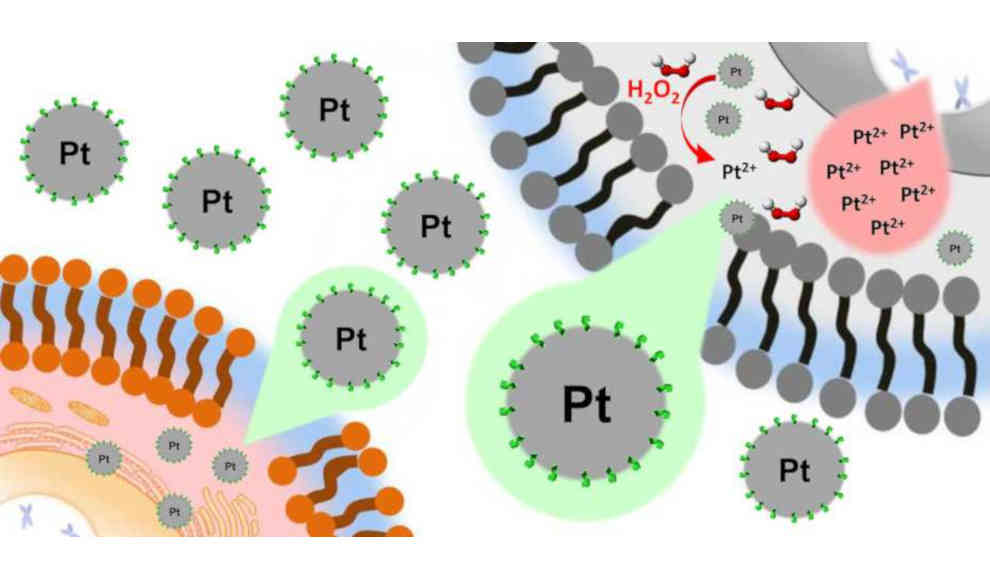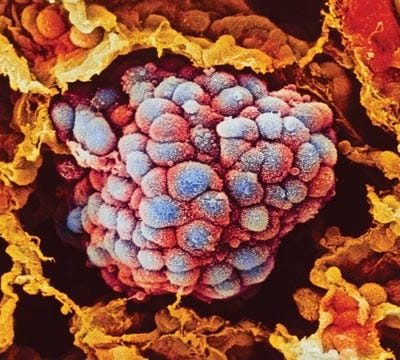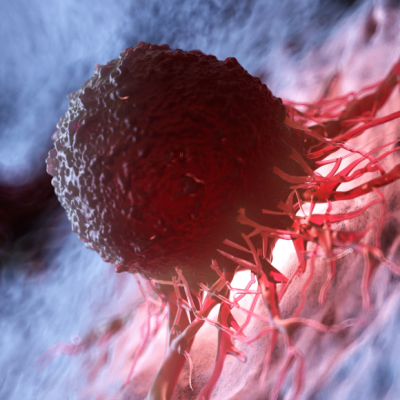Platinum nanoparticles could replace molecular biological drugs in cancer treatment due to their low side effects. Currently, molecular biological drugs are used in cancer treatment alongside traditional chemotherapy. These drugs are more targeted towards cancer cells and are less harmful to the patient. However, they still have side effects, such as damaging healthy tissue. Platinum-based chemotherapy drugs are particularly problematic in this regard. They attack cancer cells but also harm healthy tissue, causing severe side effects. Researchers at the Swiss Federal Institute of Technology in Zurich (ETH) have published a study in the journal Angewandte Chemie that proposes a new approach to selectively treat cancer cells with platinum-based chemotherapy drugs.
The researchers have developed a way to bring platinum(0) into cells and oxidize it to platinum(II) only at the site of action. This reduces the side effects of the treatment significantly. They achieved this by using platinum(0) nanoparticles stabilized with an organic compound called a peptide. The researchers identified a peptide from a library of thousands that allowed them to create 2.5 nanometer platinum nanoparticles that remain stable for several years. In laboratory tests with cell cultures, the platinum nanoparticles were taken up by the cells and oxidized to cytotoxic platinum(II) due to the specific environment of liver cancer cells. The toxicity was selective and almost exclusively affected cancer cells, while human cells were hardly affected.
Compared to Sorafenib, the drug currently most commonly used against liver tumors, the nanoparticles were equally toxic to cancer cells but caused significantly fewer side effects in human cell cultures. The researchers also examined the platinum content in the cells and their nuclei using mass spectrometry. They found that the platinum content in the nuclei of liver cancer cells was significantly higher than in other cancer types, such as colon cancer cells. While the research is still in its early stages, this new approach could improve the selectivity of drugs for specific cancer types through a selective activation process that is specific to a cell type. Further studies will investigate the chemical properties and biological effects of the nanoparticles. Clinical trials with human subjects have not yet been completed.










